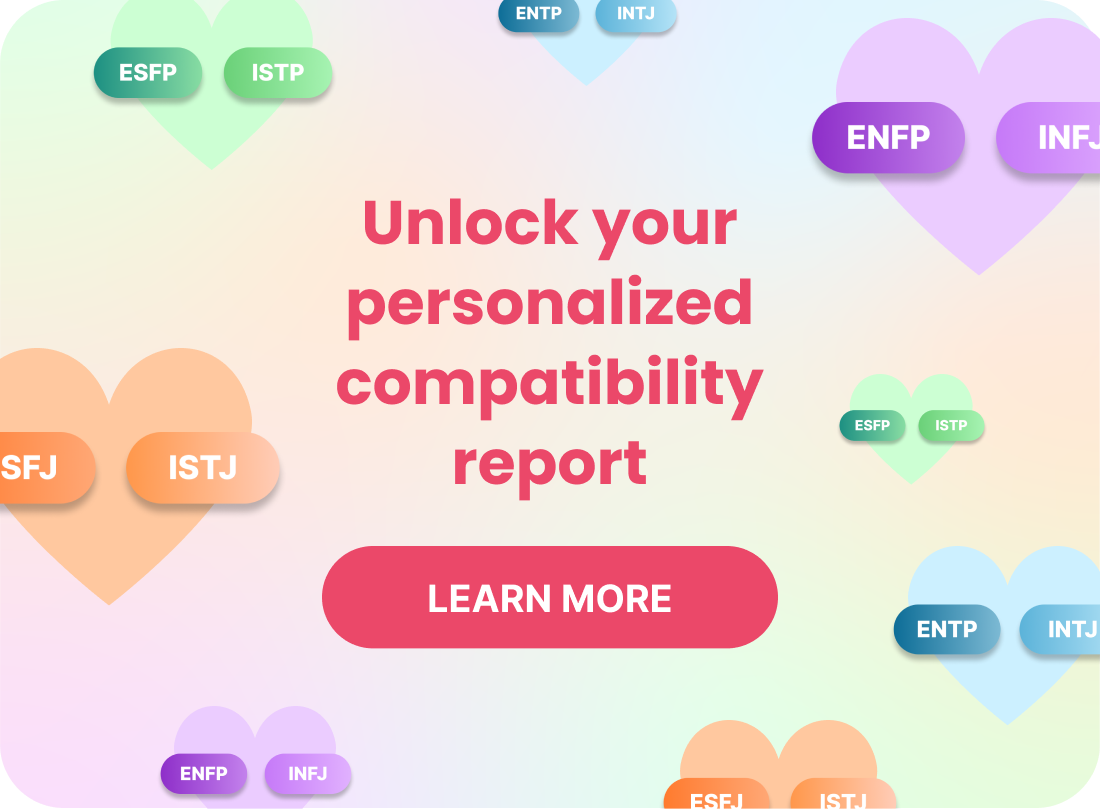15 Most Common ENFJ Weaknesses
So you’re an ENFJ personality type, and you’re looking to learn more about ENFJ weaknesses? You’ve come to the right place.

So you’re an ENFJ personality type, and you’re looking to learn more about ENFJ weaknesses? You’ve come to the right place.
If you’ve read descriptions about the ENFJ personality type, you’ll have heard many times that you’re generous, inspirational, and creative. While all of that is true, every personality type has its weaknesses. No one is generous, inspirational, and creative all the time!
Instead of trying to hide or gloss over these weaknesses, it’s better to acknowledge them and learn how to work with them. So, let’s do just that and take a look at the 15 most common weaknesses of the ENFJ personality type.
If you’re taking the time to read this blog post, you’re likely very self-aware, which is a great starting point.
15 most common ENFJ weaknesses
Right, let’s get stuck in. And just to warn you, we’re not going to hold back on this one…
1. People-pleasing.
ENFJs have a strong desire to feel needed and appreciated. This can lead them to have people-pleasing tendencies in certain situations. They may find it difficult to say “no” to others, even when they really need to. This can result in them feeling overwhelmed, stressed, and taken advantage of. However, you can’t always keep everyone happy, and if you try to do this, it will be a recipe for disaster. Instead, it’s better to focus on finding a balance between staying true to yourself and taking care of other people.
2. Too giving.

ENFJs are naturally giving people. They are always ready and willing to help out anyone who needs it. However, this can sometimes be a weakness. ENFJs can be too giving and end up neglecting their own needs in the process. It’s important to find a balance between giving to others and taking care of yourself. Otherwise, you can end up feeling resentful, used, and exhausted. There are some people who will intentionally take advantage of an ENFJ’s giving nature and setting boundaries is essential for protecting their mental and physical health.
3. Overly sensitive.
ENFJs are often very sensitive people. They tend to feel things deeply and can easily be hurt by criticism or negative comments about them or their values. They might react emotionally to a situation rather than thinking about it logically. This can sometimes lead to problems, especially in romantic relationships and in the workplace. It’s important for ENFJs not to let the negative comments of others get to them. Instead, it can be beneficial to learn to accept and appreciate constructive criticism because it can be a catalyst for self-improvement.
4. Conflict-averse.
ENFJs are typically conflict-averse because they tend to be concerned about hurting other people’s feelings. They can shy away from confrontation, preferring to keep the peace instead. This can lead to them avoiding difficult conversations or trying to make everyone else happy instead of expressing their own needs and wants. It’s important for them to remember that conflict doesn’t have to be a bad thing; it can actually lead to deeper understanding and mutual respect. However, when ENFJs feel strongly about something, they will stand up for their beliefs.
5. Struggle with details.
ENFJs have a tendency to focus more on the big picture and not pay much attention to details. They are very visionary, and they have a natural ability to lead. Plus, they are talented when it comes to thinking outside the box. However, they can struggle when it comes to dealing with the minutiae because they can find it boring. It’s important for ENFJs to learn how to slow down and take their time with tasks that require detail-oriented thinking. Sometimes, it can be helpful for ENFJs to break down tasks into smaller chunks.
6. Overthinkers.
ENFJs can often find themselves overthinking things and ruminating on them for long periods of time. This is because they naturally imagine future scenarios and foresee potential challenges. As a result, they can get stuck in a loop of worrying, analyzing, and questioning. To help combat this, it’s important for them to learn how to take a step back so they can gain some clarity. In addition, it can be helpful to question how the time spent thinking is making you feel. If it’s causing you to feel anxious, stressed, or overwhelmed, it may be time to reassess.
7. Bossy.
ENFJs can have a tendency to be bossy. They’re often very confident, and they like to take charge. This can mean that they can end up telling people what to do so they can maintain a feeling of control. This can be frustrating for people who prefer a more relaxed or democratic approach. But not everyone wants to be led all the time. In fact, a lot of people don’t. Sometimes, people just want to be allowed to do things their own way. ENFJs need to be careful that they don’t take over or try to control every situation.

8. Inflexible.
ENFJs can also be quite inflexible at times. They like things to be done a certain way, and they’re not always willing to budge on their opinions. This can make them seem inflexible. It’s important for ENFJs to remember that it’s okay to just work things out as you go along sometimes. Being inflexible can mean that you’re not open to new ideas or different ways of doing things. This can limit your ability to be creative and come up with new ideas. It can also be beneficial for stress levels to be easygoing at times.
9. Perfectionist tendencies.
ENFJs can have perfectionist tendencies. They often want everything to be just right, and they can get frustrated when things aren’t how they imagined. This need for perfection can be exhausting and unnecessary. It’s important to remember that no one is perfect and that mistakes are part of life. In fact, making mistakes is one of the best ways that we can learn and grow as human beings. Being a perfectionist all the time can lead to a lot of anxiety, and it can mean that you miss out on enjoying life.
10. Judgmental.
ENFJs can sometimes be judgmental. They often have a very clear idea in their heads of how people should behave. This can make them quick to judge others who don’t meet their standards or take the same approach that they would. It’s important for ENFJs to remember that not everyone is the same. People have different values, and they approach things in different ways. If this wasn’t the case, the world wouldn’t be nearly as fascinating. Different people have different values and priorities in life, so there’s no one ‘right’ path that suits everyone.
11. Need for external validation.
Another typical ENFJ weakness is that they can need a lot of external validation. They like to be appreciated and valued for their hard work and efforts. This can come in the form of compliments, recognition from others, or simply being popular. ENFJs like to be liked. As a result, they naturally look to others for guidance and reassurance. While there’s nothing wrong with wanting to be appreciated, it can be unhealthy to rely on external validation all the time. It can make you feel like your self-worth depends on what other people think of you. As such, it’s important for ESFJs to remember that their value comes from within and that they can validate themselves.
12. Uptight.

ENFJs can be quite uptight. They feel a sense of security from knowing what’s going to happen next, and they can get stressed out when things don’t go according to plan. Ultimately, they don’t tend to handle unpredictability well. This can make them seem rigid. It’s important for ENFJs to learn to go with the flow sometimes and to be comfortable not having everything planned out in advance. Taking a more easygoing approach now and again can make life more enjoyable and less stressful.
13. Struggle to give negative feedback.
ENFJs can find it difficult to share negative criticism, even if it’s constructive and could benefit someone in the long run. Giving negative feedback can be incredibly difficult, but it’s necessary so that people have honest and accurate information that they can use to improve. For ENFJs, giving negative feedback can feel uncomfortable because of their desire for harmony. They don’t want to upset anyone or hurt people’s feelings. But if we never receive honest critiques, then how can we grow and improve? It’s possible to give honest feedback in a gentle way. It’s not about attacking people or being mean — it’s about providing helpful insight.
14. Difficulty setting boundaries.
ENFJs are naturally generous and supportive, which can sometimes make it difficult for them to set boundaries. It can be hard for them to say no when people ask for help or favors because they don’t want to disappoint anyone. But this can lead to ENFJs taking on too much and becoming exhausted in the process. Learning how to set healthy boundaries is important for everyone, but especially for ENFJs who are naturally inclined to help others and meet their needs. That doesn’t mean you can’t be generous and helpful; it just means that you need to make sure you’re taking care of yourself too.
15. Prone to worrying.
ENFJs can be prone to worrying. This stems from their need for predictability and a sense of security. They can have a tendency to think about worst-case scenarios in their mind, which can lead to anxiety. In addition, they can replay experiences again and again in their minds while worrying about whether they said the right thing or if someone likes them. It’s important for ENFJs to be in the present moment. Instead of worrying about what could happen in the future, it can be helpful to practice focusing on what you can control, such as your own thoughts and reactions. This can help to reduce stress and anxiety.
Final thoughts on ENFJ weaknesses
So there you have it, the 15 most common ENFJ weaknesses wrapped up nicely into one little blog post for you. You might also enjoy our post about INFJ weaknesses.
We hope you found this helpful and that you can use this knowledge to become even more self-aware and work on yourself. ENFJs are amazing people with a lot to offer, but like everyone, they’re not perfect.
Just remember that not all ENFJs will show all of these weaknesses. These are just general tendencies that are common among ENFJs. So don’t worry if you don’t identify with all of them – it doesn’t mean that you’re not an ENFJ.
Finally, don’t forget to share this post with your friends and followers – knowledge is power, and knowing your weaknesses can help you work on them and become even stronger.




